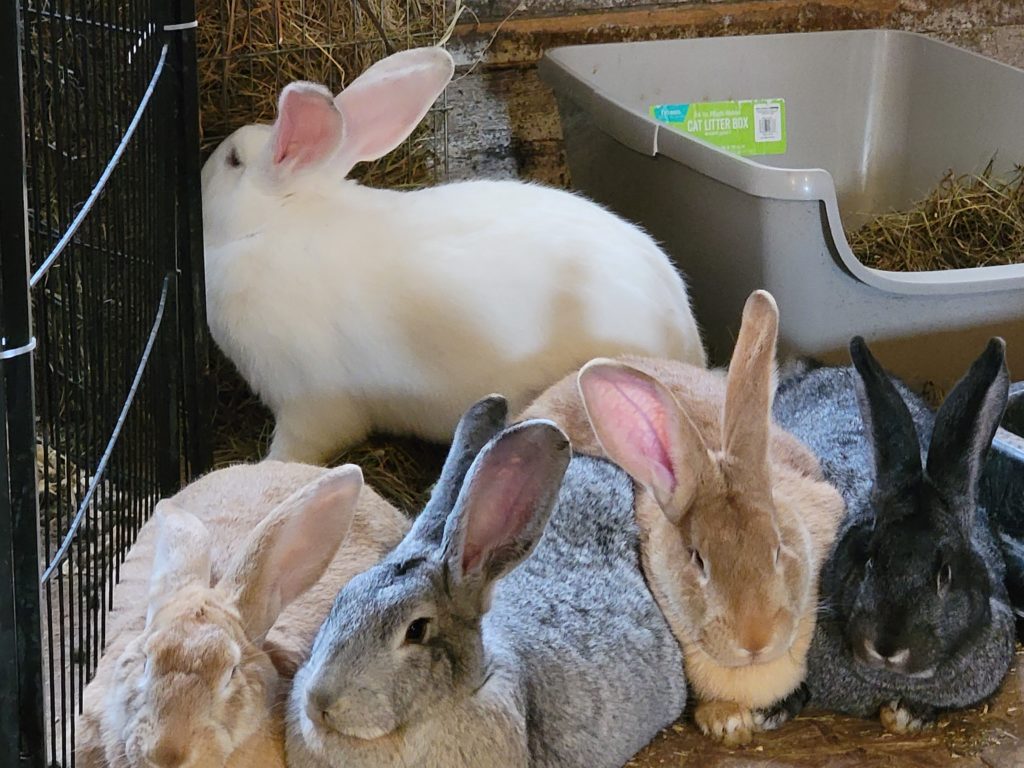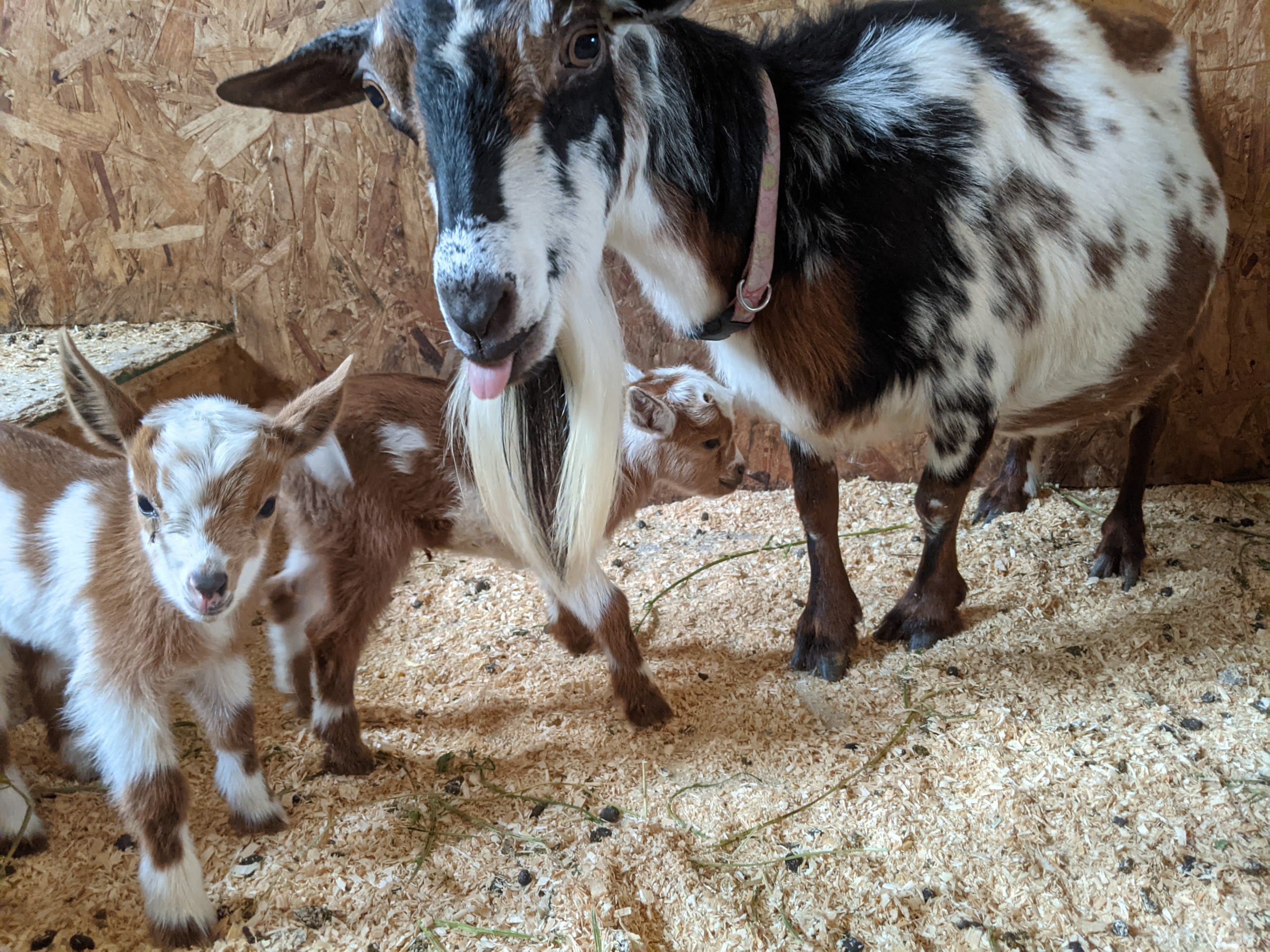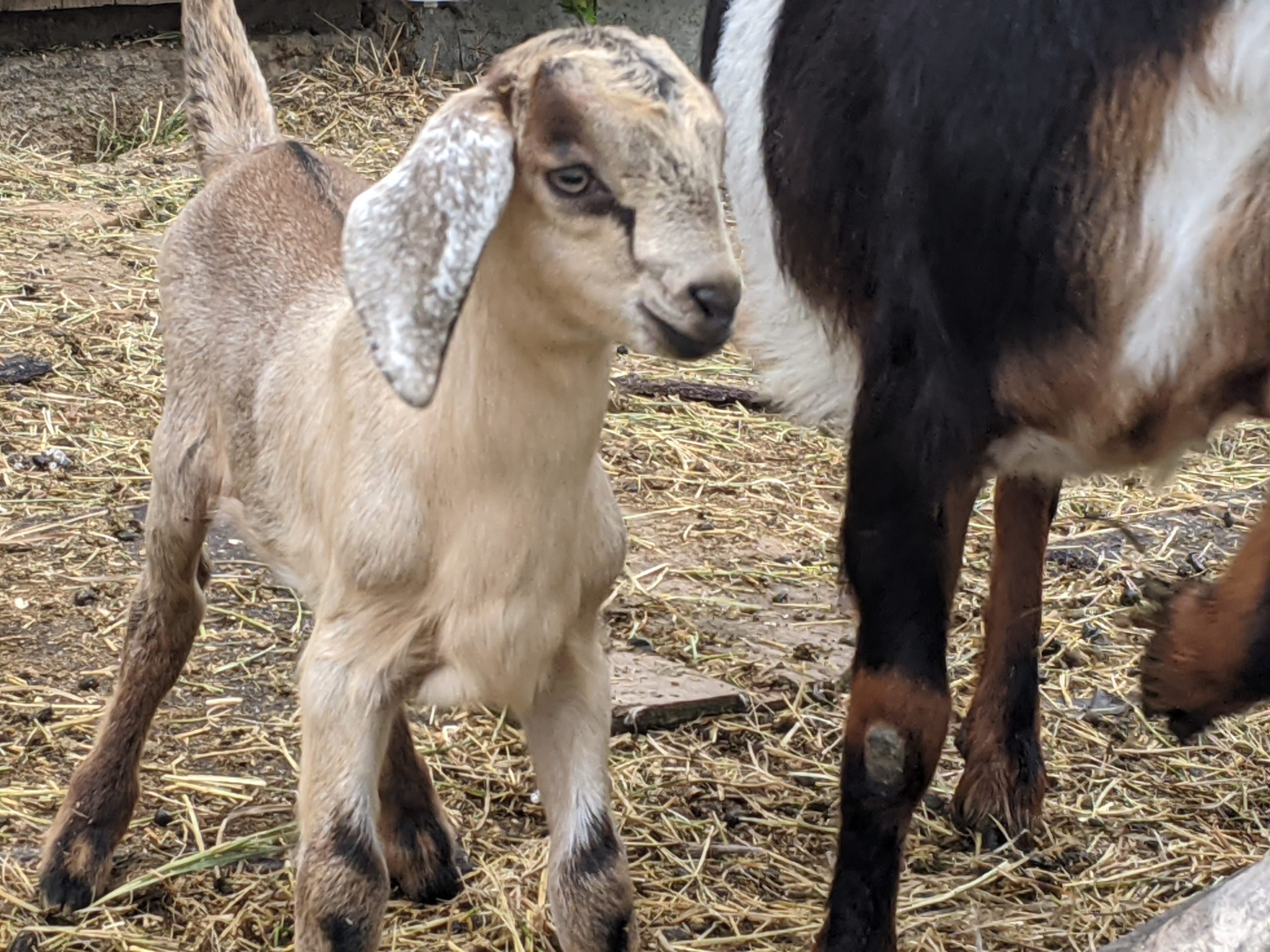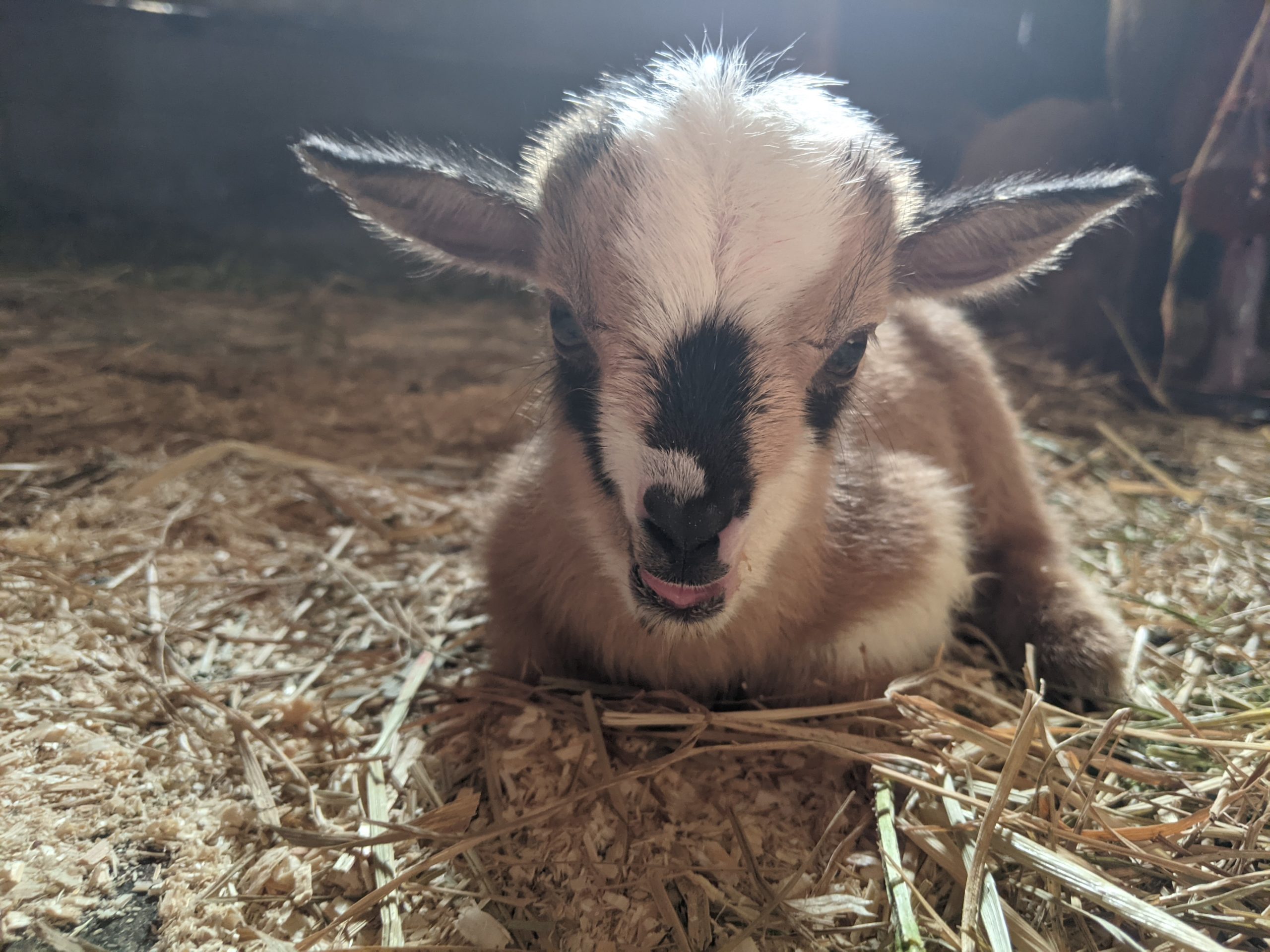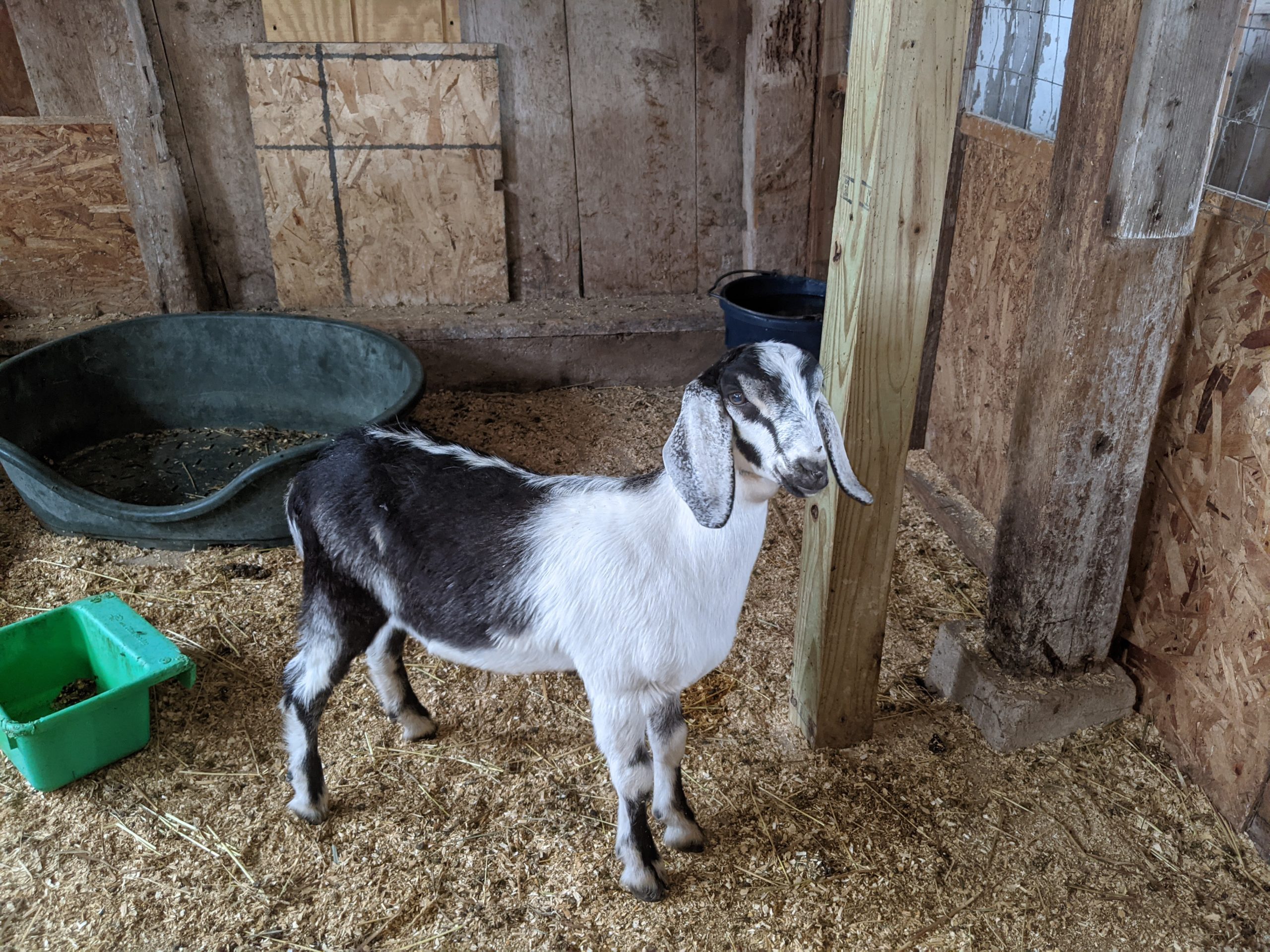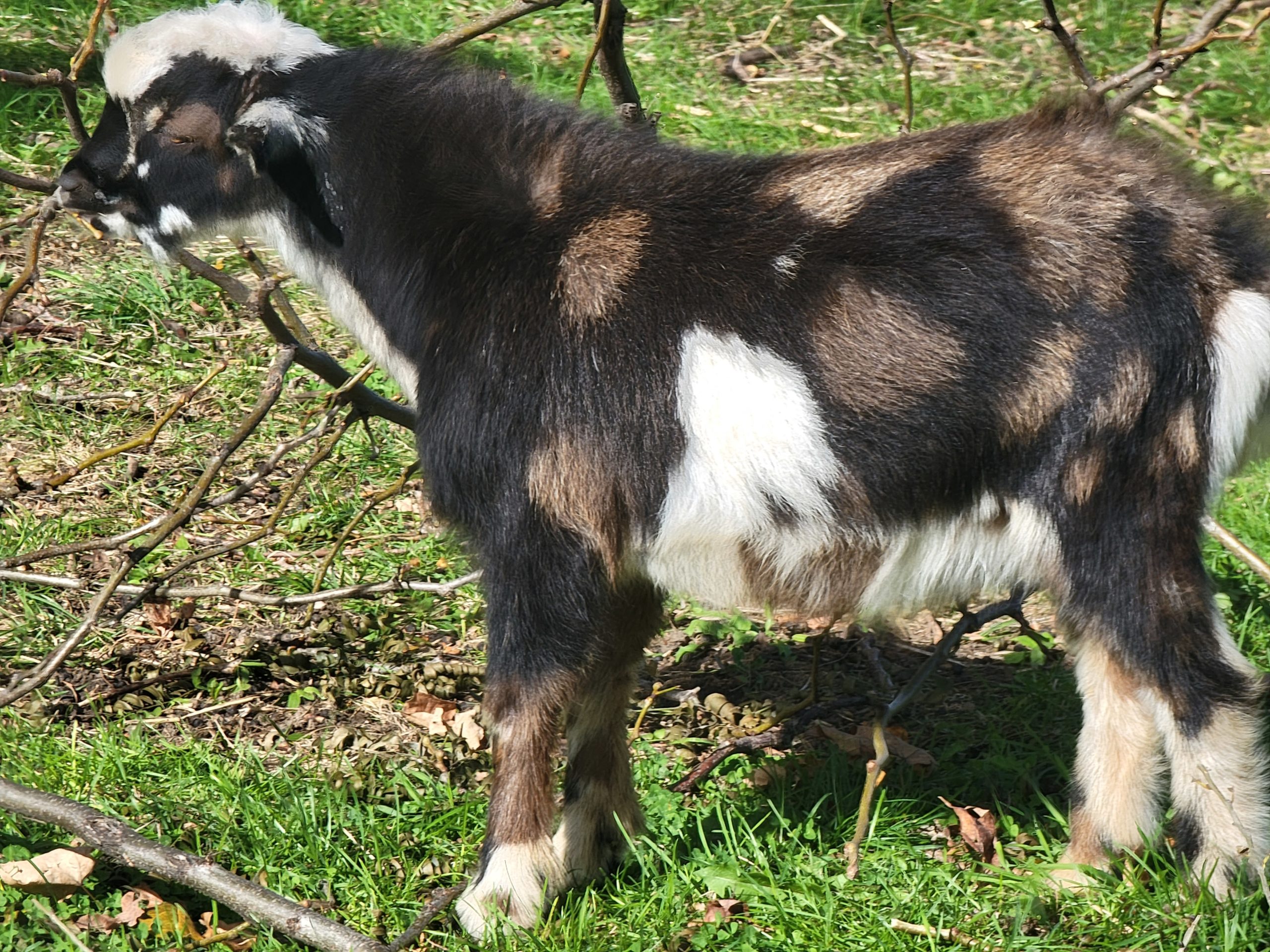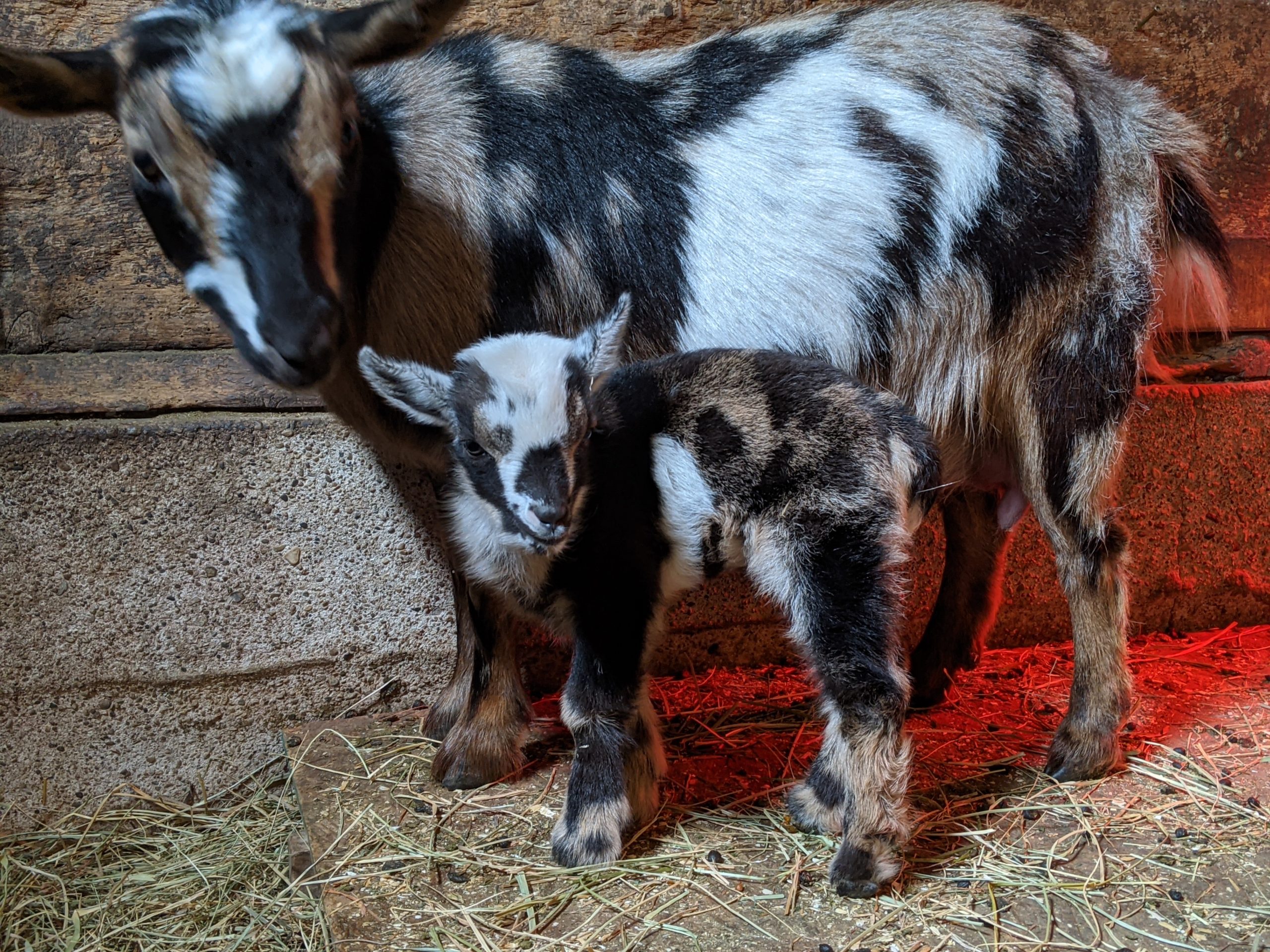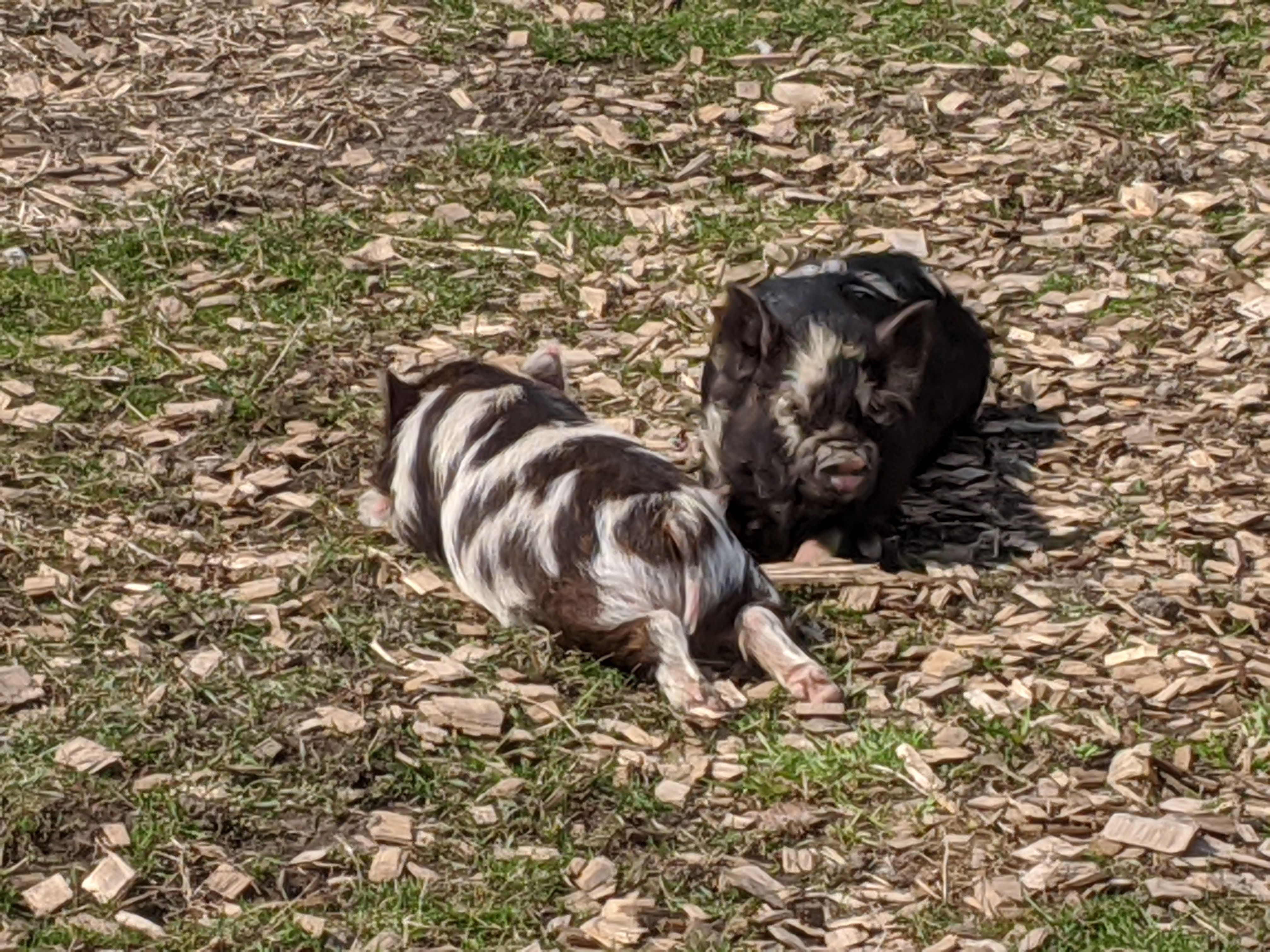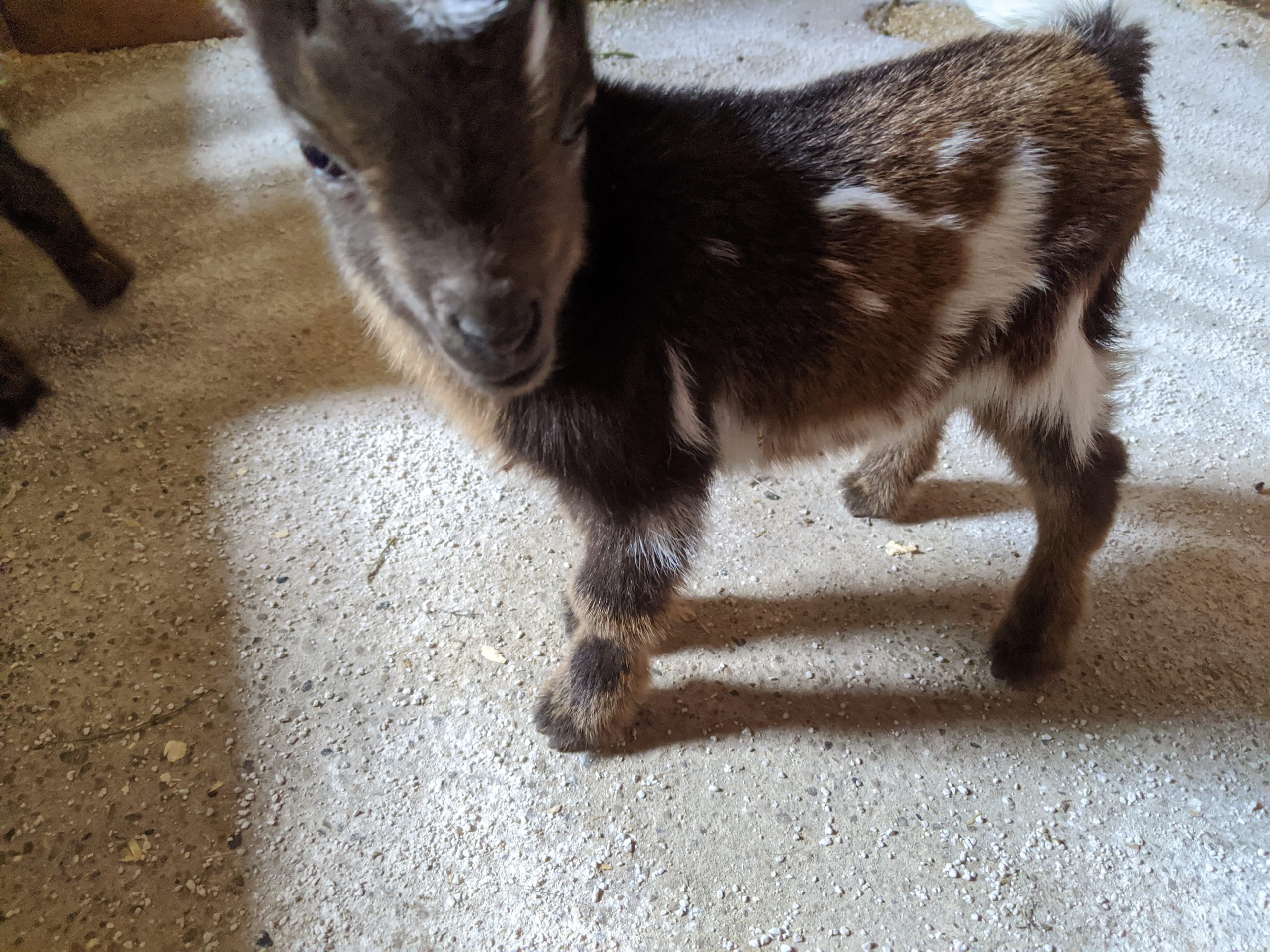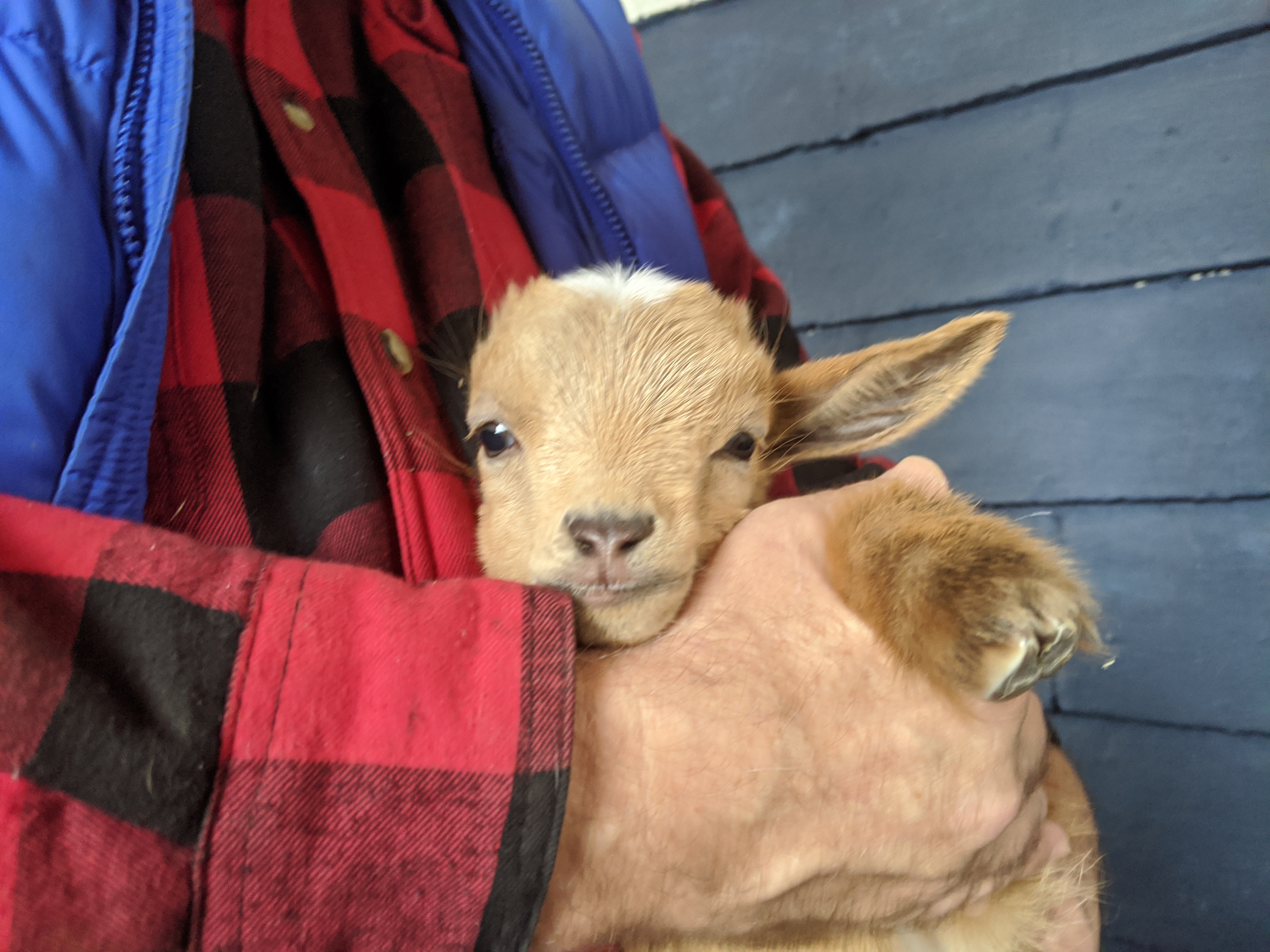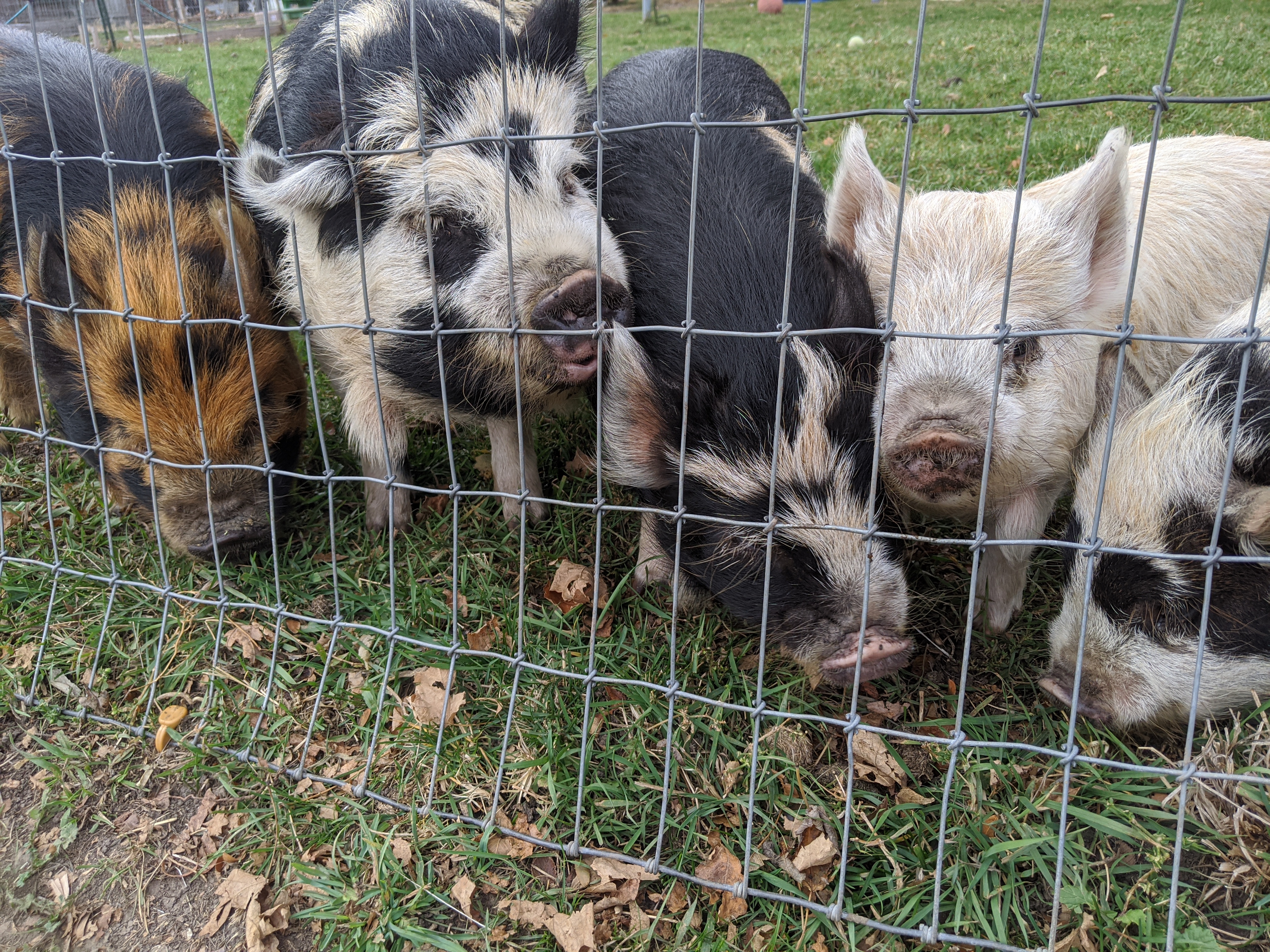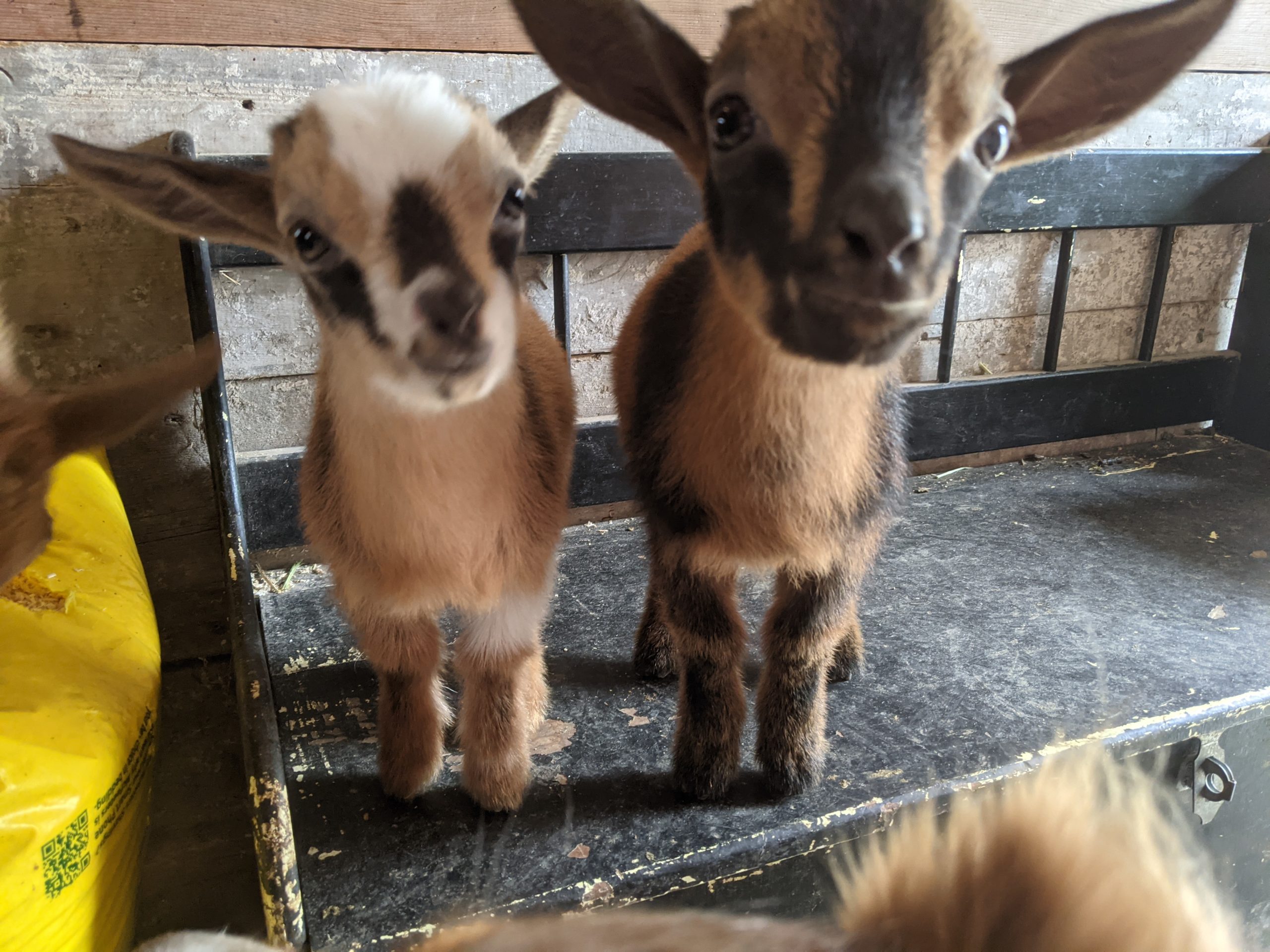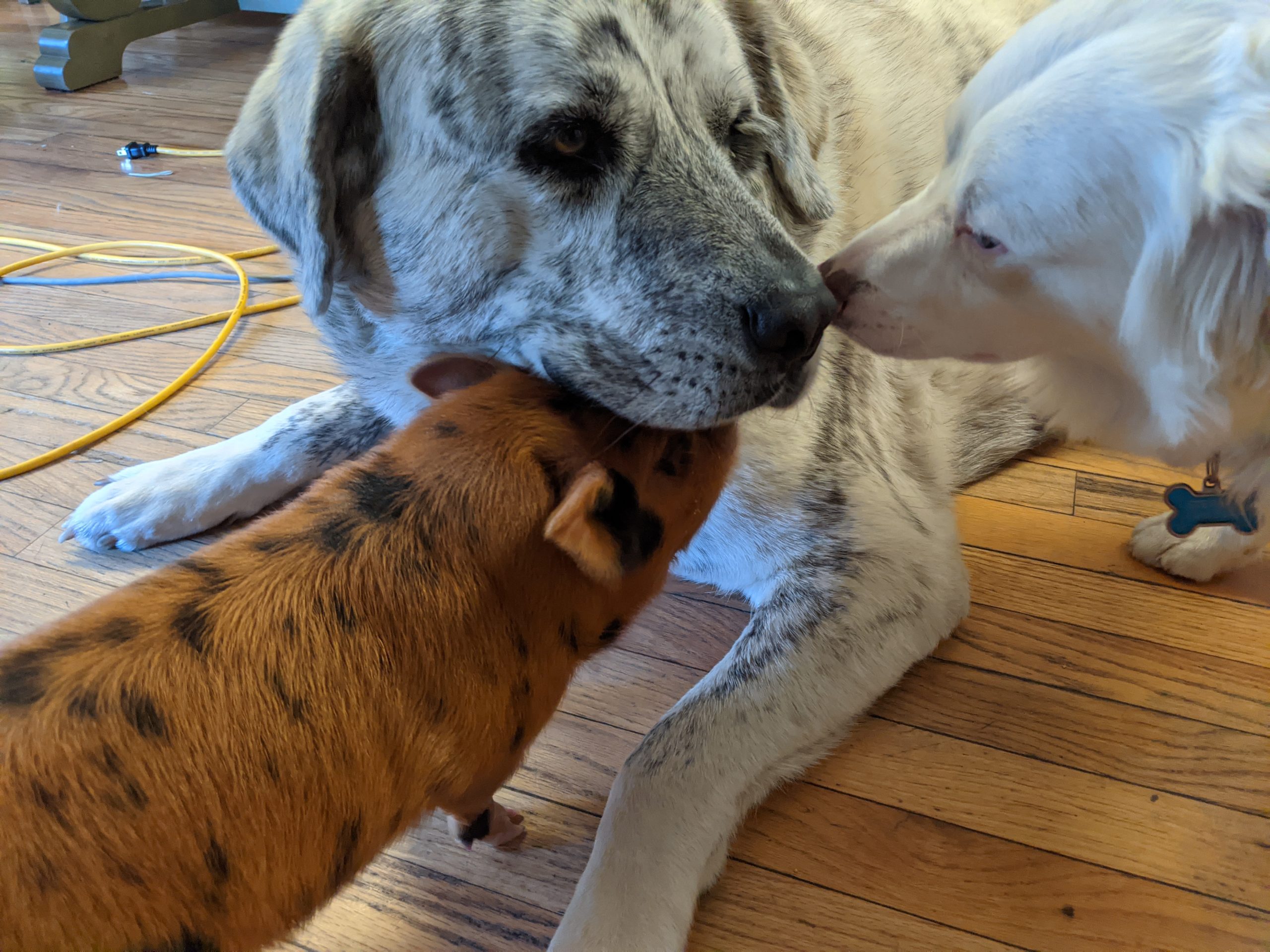Advocating the use of hooved animals and other livestock on homesteads to restore and maintain pasture land and create soil from dirt to grow food.
Articles, Films and Links to get you as pumped as I am to change the world starting with your farm!
Nigerian Dwarf Goats
Small in stature but not in personality and benefits on the homestead. Goats are browsers, eating tips of woody shrubs and trees. They often improve a pasture by removing blackberry, weedy undergrowth and ivy (even poison ivy and poison oak) that other livestock won’t eat. A doe can produce up to two quarts per day of milk that is higher in butterfat (6 to 10 percent) and protein than milk from most dairy goat breeds. Nigerian dwarf goats are raised for milk production but also as pets. They are gregarious, friendly and hardy and can thrive in almost any climate. Their gentle, calm and playful nature makes them good companion pets for children and first time homesteaders. Their small size means they do not require as much space or feed as larger dairy goat breeds.
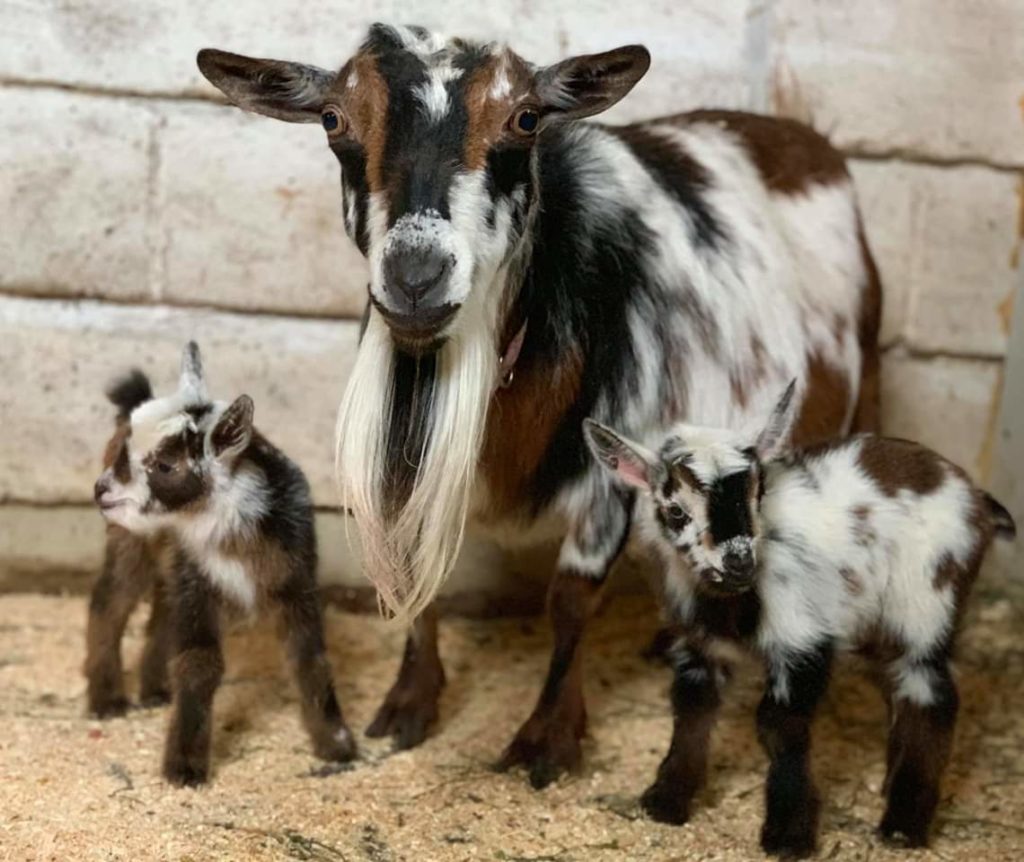
Gran Finale and her two kiddos
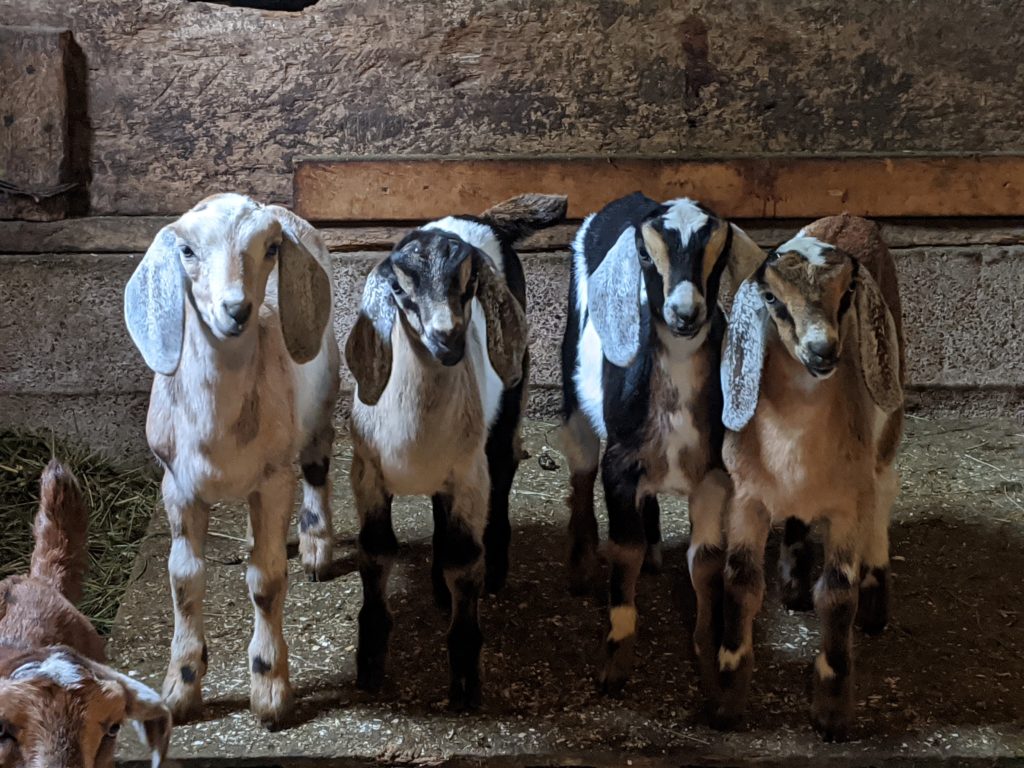
Miniature Nubian Goats
The Mini-Nubian is a mid-sized goat being of mixed Nigerian and Nubian origin. It is known for being a graceful, elegant animal standing between 23-31 inches and comes in any color or pattern of short, fine, glossy hair. This mid-sized goat is know for its ease of milking; producing a high quantity and quality of milk whose butterfat yield is similar to that of the standard Nubian. Goats are browsers, eating tips of woody shrubs and trees. They often improve a pasture by removing blackberry, weedy undergrowth and ivy (even poison ivy and poison oak) that other livestock won’t eat.
KuneKune Pigs
KuneKune, pronounced “kooney kooney”, is Maori for “fat and round,” which describes their typically short and round-bodied appearance. They are the only truly grazing pig, being able to survive on grasses alone. They have short, dished faces which keep them from rooting, heavy jowls and short, stocky legs. Males weigh between 200-400 pounds while females weigh 120-300 pounds. These pigs can possess fleshy “wattles” called “pire pire” in Maori that hang from its lower jaw. They are a rare domesticated species and are quite docile and social and thrive on human contact. They are very clean but will wallow in mud, like other pigs.
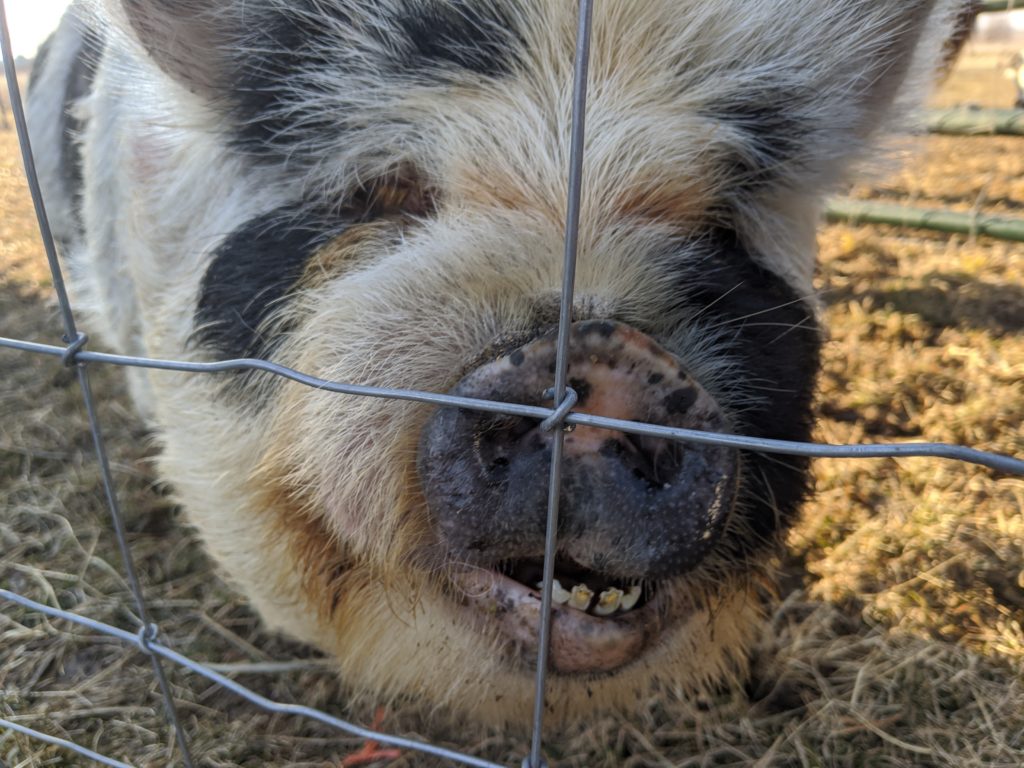
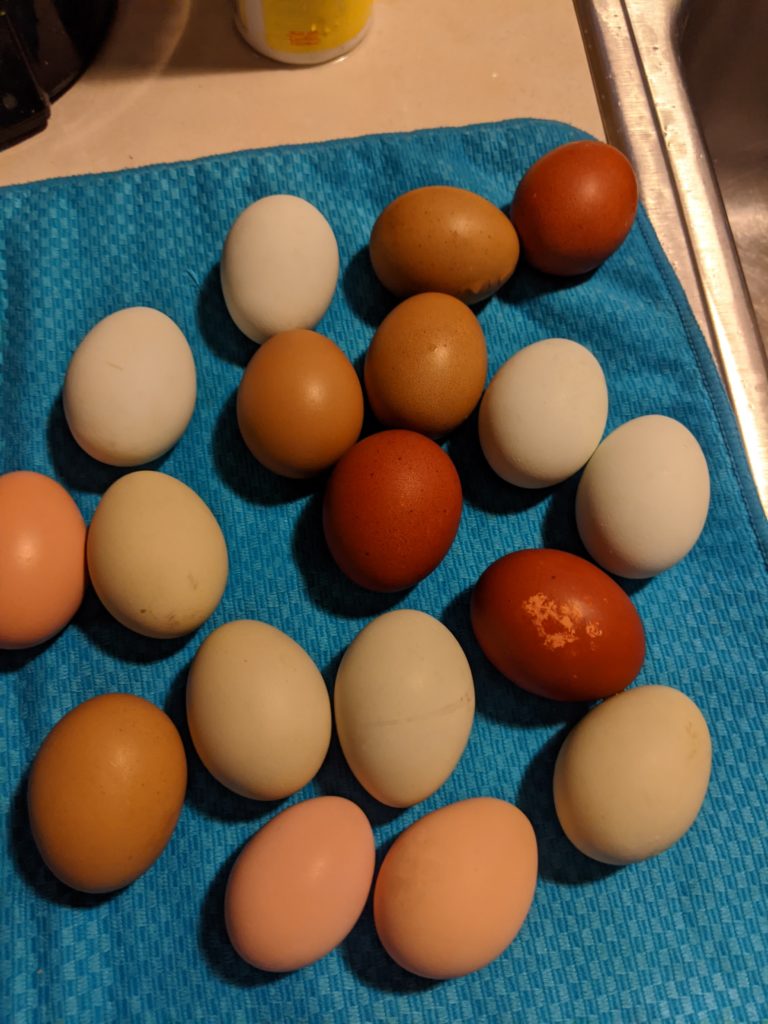
Bielefelder Kennhuhn Chickens
These gentle giants are extremely docile, beautiful and easy to raise — the hardest thing about raising Bielefelders is being able to pronounce their name. These robust birds have large, round bodies that put Orpingtons to shame. Males have barred feathers and are easily 10 pounds, and hens aren’t much smaller. These are great birds for both meat and eggs. They are auto-sexed which means when they hatch you can tell who’s who by the color of the chicks fuzz. They lay more eggs than most breeds at 230+ per year! Chickens are also super great because while you are composting manure from your hooved companions the chickens will scratch through it gobbling up all the fly larvae and othe bugs they can find while also turning the manure for you. No need to give them feed, just wait for your incredible organic eggs from your free range chickens.
Flemish & Continental Giant Rabbits
Flemish Giants are still prized for their meat and for their fur, but are also often bred today as pets. They are known as the “Gentle Giants” of the rabbit world. Because of their size, these rabbits need a fairly large space in which to roam, but they can be litter-boxed trained which means that they can also be allowed to roam freely indoors. They can be anywhere from 15-25 pounds and can live up to 5-8 years due to their giant size. There’s just no poop that works as well for the garden as rabbit poop. It has all the uber-benefits of horse and steer manure but with a distinct advantage. Because it’s considered a “cold” manure, you don’t have to let rabbit poop age or compost before you use it. Other manures that come from chickens, sheep, horse, cows, and pigs or “hot” manures, need to be composted for months before you can safely use them or you’ll burn your little plant darlings to death. Not so with rabbit poop. Which is why they have earned themselves a stay on the homestead.
